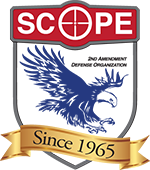By Harold Moskowitz
When France and Great Britain fought each other in the 1790’s, the United States neutrality policy recommended by President Washington was questioned. Some Americans favored France out of dislike for the British and gratitude for French assistance during the Revolution. Others, horrified by reports of bloody executions during the French Revolution, sided with Great Britain.
The United States had signed a neutrality agreement but France wanted the United States to support them against the British. The government resisted their pressure and instead signed the Jay Treaty with Great Britain which settled old issues. The French reacted by interfering with American shipping. President John Adams sent envoys to France in an effort to diffuse hostility. French diplomats responded by seeking bribe money for granting access to their Foreign Minister and a loan for the French war effort against Britain.
When news of the French diplomatic actions reached Adams, he requested and was given Congressional funding for a military buildup. A two-year undeclared war with France followed. It is known as the “Quasi-War.” During this time, French naval vessels and privateers attacked our ships. They did all that they could to disrupt American trade with Great Britain.
In order to finance the ‘Quasi-War,’ Congress needed to raise two million dollars. It chose to impose the only direct tax on personal property in our nation’s history. Known as the “House Tax” (1798), it taxed residential structures, land, and slaves. Each state was to be proportionately responsible for its share of the total. Pennsylvania’s share was $237,000.
Since there were very few slaves in Pennsylvania, the tax was mostly based upon inhabited residences and land ownership. The taxable amount for homeowners was to be based upon the size of the windows and the number of window panes. Many state residents refused to pay the tax. They claimed that the tax was not being levied equally in proportion to the state’s population as was required by the U.S. Constitution.
Many of the settlers in the northeastern past of the state were originally from Germany where they had been forced to pay a “Hearth Tax.” It was also disliked because it was for funding a “non-existing” war.
In Bucks, Lehigh, Northampton, and Montgomery Counties, people began to protest the tax. As during the American Revolution, “liberty poles” were erected. Women even threw hot water down from the second floors of houses onto the agents as they counted and measured windows on the ground floor. John Fries became the leader of the opposition. He began to lead a group of about sixty armed men. Their goal was to prevent tax assessors from carrying out their job. Often, tax agents were intimidated and run out of town. Their lives were threatened.
Fries told an assessor that if he did not leave, “700 men would be ready to fight to the end.” A few assessors were taken hostage and held for several hours. Upon release, they were threatened with death if they returned. The governor sent the militia to arrest rebels and tax resistors in what became known as “Fries’ Rebellion.”
Nineteen men were arrested. Fries and 400 men freed them from the custody of a United States Marshal. President Adams called for a militia to be raised. The 1,200 man militia rearrested the 19 freed prisoners. Fries was captured. He and two others were tried for treason. As was the situation in the Whiskey Rebellion (1794) trials, the definition of “treason” was an expanded one. It said that “combining to defeat or resist a federal law was the equivalent of levying war against the United States.”The others were tried for misdemeanors such as “opposition to the House Tax,” “hindering the assessors in their duties,” and “holding unlawful meetings for interfering with the execution of the laws.”
Forty-one of the arrested men were tried in federal court. Three, including Fries, were found guilty of treason and sentenced to death. Those tried for misdemeanors were convicted except for one. Two days before the execution date, President Adams pardoned the three condemned men as well as those who had been convicted of misdemeanors.
Fries was seen by many in the nation as a victim of federal power. The handling of the “rebellion” by President Adams damaged the political standing of the Federalist Party. Hostility in Pennsylvania prevented Adams from “carrying” the state in the election of 1800, allowing Jefferson to defeat him. The “House Tax” was repealed in 1802. Armed citizen resistance had made a difference.
